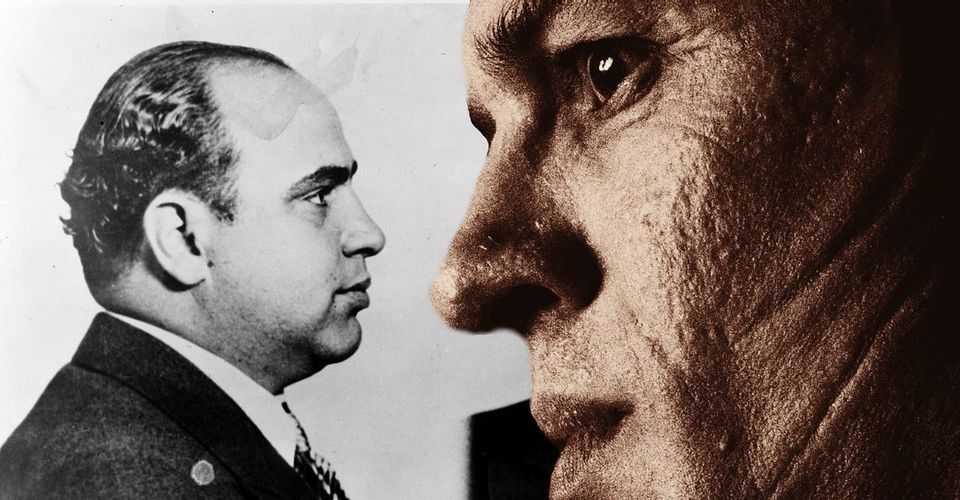How & When Did Al Capone Die

Capone left its audience somewhat in the dark about Al Capone’s death, so how did the gangster meet his end in real life? Fresh from tackling London’s Kray twins in Legend, Tom Hardy continues to assemble the movie mobster full house with Capone, a biopic written and directed by Josh Trank. Interestingly, Capone focuses on the title character during his later years, rather than his criminal pomp. Fresh from his stint in prison, the once formidable Al Capone is now riddled with syphilis, and Hardy’s portrayal is of a fallen giant gradually fading from reality and fighting with the sins of his past. Capone is one of several 2020 movies that have been forced into premiering via home media due to the current pandemic, but despite being one of the only new movies available in recent months, has courted a distinctly mixed response.
Although Capone doesn’t pull many punches in portraying the declining health of its title character, there’s a more ambiguous note to his on-screen ending. In Capone‘s closing moments, the former gangster is visited by the illegitimate son who haunts Hardy’s character throughout the movie. The pair share a tender, silent moment, providing closure for the ailing Capone before his death, and the movie rounds out by briefly explaining what happened to the rest of Al’s family in later years. Predictably, Capone takes a few artistic liberties with the truth (such as the illegitimate son angle) and his real life death is something the movie doesn’t touch upon.
Al Capone died on January 25th, 1947 at the age of 48 after suffering a stroke and subsequently going into cardiac arrest. In his final days, Capone suffered a series of such incidents, as well as pneumonia, but the stroke on the 25th proved to be the final chapter to the archetypal gangster’s mythical story. As shown in the ending of Capone, however, Al’s final days were spent at home with family by his side.

By ending on the softer image of Tom Hardy sitting hand-in-hand with his grown-up fictional son, Capone avoids portraying how its subject ultimately died. If filmed and presented completely true to life, Al Capone’s stroke and cardiac arrest likely would’ve made for an uncomfortable and violent finale. Given the intensity and darker depiction of Capone’s final year that dominates the rest of the story, however, it perhaps made sense to opt for a more ambiguous, thought-provoking closing that brought at least a touch of reconciliation to Hardy’s deeply troubled Capone. Nevertheless, the closing shot does leave wondering where the real Al Capone’s life ended.
While Trank’s movie doesn’t explore how Al Capone actually died, the overarching topic of his poor health and loosening grip on reality is more true to life, although many suggest that the gangster did routinely play-up his condition for the benefit of the law enforcement officers still tracking his movements. Nevertheless, Capone’s deterioration certainly wasn’t faked, and after contracting syphilis years prior, began to show dementia-like symptoms while in prison, with reports likening his mental capacity to that of a child during his final year of life. The advent of penicillin would give the struggling Capone some extra time, but the disease had taken hold by that point. The neurosyphilis Capone harbored in later life is a common cause of strokes, undoubtedly playing a part of his cause of death, and the disease itself is a product of both the sexual attitudes and medical progress of the day.
Capone may not grapple with the reality of its lead character’s death, but this isn’t one of the reasons the film has proved so divisive. Instead, it’s more the portrayal of a rapidly fading mind, and Tom Hardy’s performance in such a role, that is dividing audiences.
About The Author


















